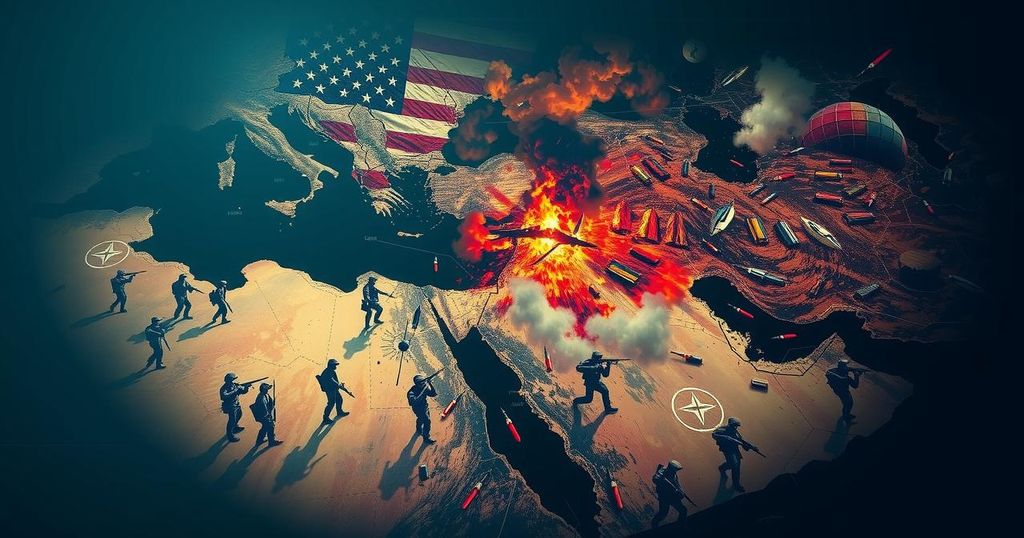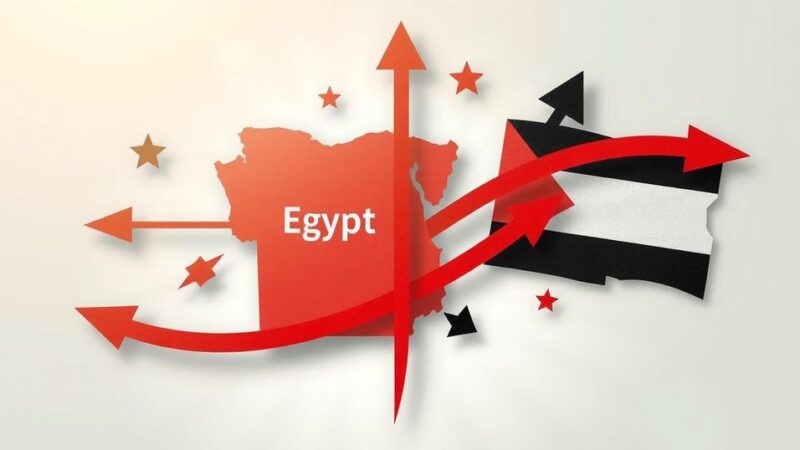Israel conducted airstrikes on Iran targeting military sites in retaliation for missile attacks. This marks a significant escalation in tensions amid ongoing regional conflicts involving Iranian-backed groups. The strikes occurred shortly after Iran fired ballistic missiles at Israel. The U.S. has been closely monitoring developments, concerned about potential escalation into an all-out war.
In a significant escalation of tensions in the Middle East, Israel launched a series of airstrikes on Iranian military sites on Saturday, marking a direct response to recent missile attacks from Iran. The Israeli military indicated that the airstrikes, which targeted missile manufacturing facilities and other military assets, were retaliation for the barrages of ballistic missiles Iran had fired towards Israel on October 1. Witnesses in Tehran reported hearing multiple explosions, but immediate details regarding damage or casualties remained scarce. This military action stirs concerns of a potential all-out war between the two countries, which have been traditional adversaries, particularly in the context of ongoing regional conflicts involving Iranian-backed groups like Hamas and Hezbollah. This is notably the first instance of Israel conducting overt military operations against Iran since the 1980s conflict with Iraq. Following the strikes, an Israeli defense spokesman reiterated the country’s right to defend itself, particularly in light of the Iranian regime’s persistent attacks. The United States, amidst these developments, had previously sought assurances from Israel that it would avoid hitting sensitive nuclear and oil targets in Iran, viewing such attacks as escalatory. As the situation develops, Iran acknowledged the strikes through state media but attempted to downplay the significance, focusing on other local events. Residents described the air raids as unsettling, with air defenses reportedly engaging targets in the capital. Contrastingly, the Iranian state media shifted its narrative shortly after the attacks, depicting images of civilian life rather than military responses. The day’s events unfolded against a backdrop of increased military engagements in Syria and significant hostilities along the Israel-Lebanon border. In recent weeks, Israel has intensified operations against Hezbollah, with substantial casualties reported on both sides. The overarching conflict was catalyzed by a deadly attack from Hamas into Israel on October 7, resulting in considerable civilian losses and prompting an ongoing Israeli military response in Gaza. As this conflict escalates, the U.S. continues to monitor the situation closely, with President Biden receiving regular updates. Meanwhile, the complex dynamics between Iran and Israel, characterized by years of covert operations and proxy warfare, seem increasingly vulnerable to overt confrontation.
The longstanding animosity between Israel and Iran has been exacerbated by regional conflict dynamics, particularly following the Islamic Revolution in Iran in 1979. The two nations have been involved in a shadow war for years, which encompasses cyber operations, the assassination of Iranian scientists, and numerous missile and drone attacks attributed to Iranian proxies. The backdrop of the current escalation is fueled by recent events, including Iran’s missile attack on Israel, which reportedly came as a retaliation for perceived attacks against Iranian leadership and military personnel.
In conclusion, Israel’s recent airstrikes in Iran constitute a significant escalation in an already volatile regional conflict, underscoring the precarious nature of Middle Eastern geopolitics. The situation remains fluid, with both nations poised for further military engagement, which may have far-reaching implications not only for Israel and Iran but also for the broader region and international diplomatic efforts to stabilize ongoing conflicts.
Original Source: www.wral.com






